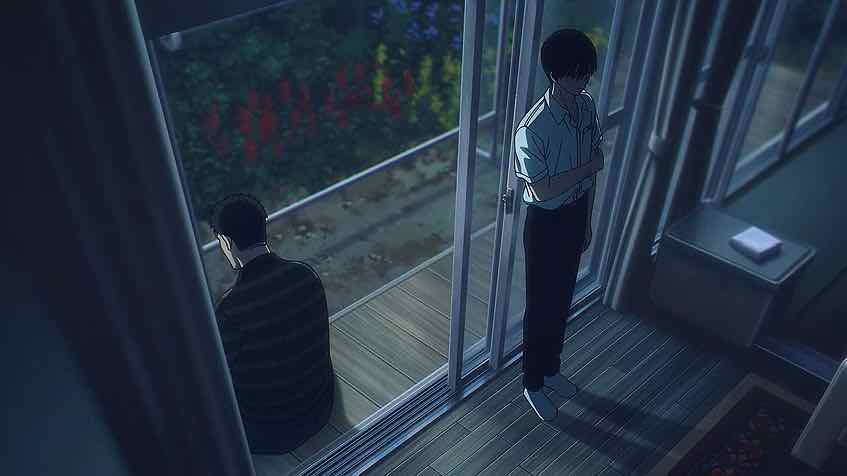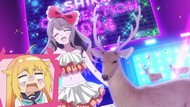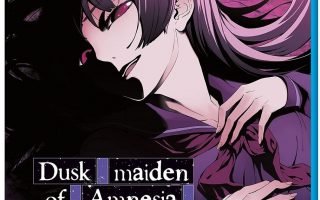I have to say, on balance that was one of the most profoundly sad anime episodes I’ve seen in a long time. If there was any doubt that the core DNA of Hikaru ga Shinda Natsu is tragedy, this serves as a reminder that it’s groundless. Between the father-son moments and the inner despair the main characters are feeling, this was just a dark and somber vibe start to finish. I was just at Kyoto Manga and Anime Fair and Hikaru was one of the most prominent series there, reflecting its status as a major hit. But given that the manga is only at 7 volumes and will run a total of 10, it’s going to be a while until the adaptation can finish its work (which it certainly will). That’s going to be a long couple of years.
We start off with Yoshiki and his father, which we’ve long known was a basically non-existent relationship. But Yoshiki has no choice but to turn to him now, as Toshinori knew Kouhei better than anyone else. We see that at least when Yoshiki was small, he and his father did talk, though even that there’s a certain air of awkwardness. It was Kouhei’s death that changed everything – not just between Toshinori and his son, but everyone else too. He tells Yoshiki that it “felt like everything good about the village died with him”.
It’s undeniable that we could easily imagine Yoshiki saying that about Hikaru. Maybe the most telling part of this exchange is him internally bemoaning how alike he and his father are (often a reason for tension between fathers and sons), just before Toshinori tells him they’re different. Did Toshinori love Kouhei the same way Yoshiki loved Hikaru? That seems very likely, and that too is profoundly disturbing for the son to contemplate. Of course in practical terms, Toshinori also tells Yoshiki about the true nature of the Indou family’s sin – they burden the sons of the family had to carry, and how Kouhei tried to end it (and perhaps paid for that with his life).
One way that father and son are indeed alike is their love of books, and it’s interesting that Yoshiki seems to surprised at his father’s library – as if this was his first time in that room. He borrows some of those books, among them a photo book of Italian Renaissance art. And among those paintings is “A Sketch of Gehenna, 1519” (not a real painting). Gehenna is a Hebrew word for Hell (named after a valley near Jerusalem where child sacrifices were once practiced) and the image is strikingly similar to something Yoshiki has borne witness to on multiple occasions.
The second of the triumvirate of bleak conversations in this episode takes place between Hikaru and Yoshiki at school. Hikar2 is clearly already thinking about how he could end the problems he seems to be causing for Kubitachi (and Yoshiki is too). Yoshiki asks him if he could stop feeling pain if Yoshiki returned his missing half to him. Hikar2 smiles sadly and asserts that it’s not that simple, as his missing half might simply disappear inside him. Perhaps he says this to protect Yoshiki from his full strength. Yoshiki asks him about Hichi-san; Hikar2 says he can’t really remember. Hikar2 asks Yoshiki about his memories of Hikaru, and then all Gehenna breaks loose.
“Mixed” is a word we hear a lot in The Summer Hikaru Died, especially this week. Thinking about Hichi and his old self seems to break something inside Hikar2, and his true form escapes through the scar on his neck. Yoshiki flees, then stops when realizing he’s leading Hikar2 towards Asako and Yuki. Hikaru and Yoshiki are mixed again, and Yoshiki realizes it doesn’t feel so bad. But somehow Hikaru2 checks himself, pulls back. He flees the scene despite Yoshiki’s attempts to stop him.
I’ve written before about Kurebayashi-san’s importance to the story. She may be my favorite character in it, and in some ways I think this final scene is even more heartbreaking than the ones that came before. If one puts themselves in her shoes, it’s easy to understand the agony she’s going through here. She saw first-hand, in the most direct and personal terms, what mixing with the other side can lead to. She knows what she should do here. But she’s also a mom, and an inherently kind and compassionate person. Her mind knows what this boy is, but her eyes tell her he’s just that – a boy. A child who came to her for help when all around him was despair.
It’s mostly Yoshiki about whom the term mixed has been used, and the dangers of that are very clear. But Hikaru is mixed too, make no mistake. Does this sadness he feels – and equally as poignantly, the need to belong – come from him, or from some remnant of the human child whose body he possessed? Even Kurebayashi, who sees deeper and farther than anyone in this story, can’t be sure of the answer. And what’s even more unsettling for her, whether knowing the answer would make the choice facing her any easier.
The post Hikaru ga Shinda Natsu (The Summer Hikaru Died) – 11 appeared first on Lost in Anime.




